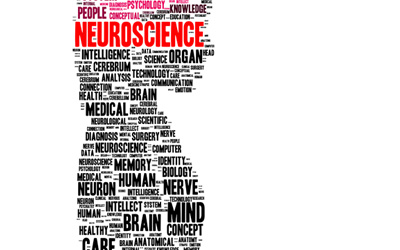A neuropsychology degree is for individuals who are fascinated by the inner workings of the brain and how these relate to human behavior. As a part of this discipline, you can contribute in terms of research or working with patients who have suffered traumatic brain injuries and illnesses.
Various degree levels are available at different universities across the United States in neuropsychology and its related subjects.
Neuropsychology Degree Programs
Neuropsychologists deal with patients in diagnostics and treatment of strokes and other traumatic brain injuries. They might also deal with disorders such as Parkinson’s disease, Alzheimer’s disease and other forms of dementia, and learning disabilities.
Neuropsychology degrees help students understand these topics in varying levels of details, depending on the level of education you are going for.

Neuropsychology Undergraduate Programs
Bachelors in Neuropsychology
A bachelor’s in neuropsychology is the first step towards developing your career as a neuropsychologist. Prospective students are advised to enroll in a psychology, biology, neuroscience or a related field degree at this stage. This degree would take at least four years to complete.
Students enrolled in a bachelor’s in psychology program will be taught to treat the brain as a biological machine with a set of functional principles. The courses offered in most universities relating to this subject area would typically revolve around topics such as:
-
Brain injury
-
Cognitive development
-
Psycholinguistics
-
Social cognition
-
psychobiology
While a bachelor’s degree might land you internships or assistantships, to become a neuropsychologist, you will need a higher qualification. For this purpose, you might want to look into graduate programs.
Neuropsychology Graduate Programs
Masters in Neuropsychology
A master’s degree in neuropsychology will usually not require students to have completed an undergraduate in a related major, though it will be considered a major plus point if you have prior knowledge of the subject. The courses taught at this degree level include topics relevant to cognitive behavioral, memory and learning brain processes, as well as foundational studies in statistics and experimental psychology. In-depth investigation of the physiological and biological factors that affect behavior, such as hormones and genetics will be carried out through the course of this degree. Typical courses that you can expect to be taught include:
-
Psychopharmacology
-
Physiological psychology
-
Neuroanatomy
-
Biopsychology
-
Psychoneurochemistry
In addition to that, a master’s degree in neuropsychology will also require you to complete various projects and submit a thesis at the end of the program. If you are more interested in a non-clinical or academic career, science-based programs may allow you to concentrate on developmental studies and teaching preparation. There are various graduate programs in this field that might offer or require you to participate in a teaching assistantship as part of the program. The degree will usually take around two years to complete.
Doctorate in Neuropsychology
According to the American Psychologists Association, a concentrated and focused study in clinical neuropsychology begins at the PhD level, with profession-specific studies and training at the postdoctoral level. Most students interested in a PhD in this field end up going for a specialization in neuropsychology or clinical neuropsychology. Another path that you could take would be to earn a PhD or a Psy.D. in clinical psychology and obtain a postdoctoral certificate program in neuropsychology after that.
A doctorate degree in neuropsychology would take nearly seven years to complete. During the course of this degree, you will be taught how to administer and evaluate standardized tests for brain dysfunction. The curriculum for a PhD program would include advance level subjects as well as a few fundamental courses. The subjects of the courses would typically revolve around neuroanatomy, causes of etiologies of neurological disorders, neurodiagnostic techniques, etc. At the end of the program, most doctoral programs would require students to complete and present a doctoral dissertation.
Neuropsychology Certificate Programs
While a neuropsychology certificate is not a stringent requirement to be able to practice as a neuropsychologist, it is highly desirable in this competitive field and might actually be a requirement for a position with a specific employer. There are several institutions that offer this certification. Among them is the American Board of Clinical Neuropsychology (ABCN). The ABCN has its own particular set of requirements for candidates, including a doctoral degree from a designated accredited college and a complete APA-accredited internship program or a similar supervised year long experience. In addition to that, most accrediting agencies might require you to be licensed to practice in a U.S. or a Canadian jurisdiction, along with passing a written and oral examination.
Neuropsychology certificate programs online are also an option you could look into. The online certification makes the whole preparation and examination process easier, giving you the convenience and flexibility you might be looking for, especially with a career.
Online Neuropsychology Degree
It is fairly difficult to find a completely online program in neuropsychology due to the nature of the program. The studies focus greatly on the structure and chemicals of the nervous system, which frequently require hands-on experience, practical assessments and research. Therefore these tasks must be completed on campus.
In addition to that, since neuropsychology programs typically require a doctorate, it is difficult to find them online. Online degrees are more readily available at the undergraduate or the graduate level and in programs that do not have such a strong practical element attached to their curriculum.
Careers in Neuropsychology
Neuropsychologists typically find themselves in roles where they explore memory formation or the impact of brain injuries on cognition, physical ability and emotional structures. Their career options are vast and include the likes of research centers, rehabilitation facilities and academic institutions among other places.
Neuropsychologists
Neuropsychologists assess and treat clients suffering from neurological disorders or brain injuries. They typically work with an entire team of health care professionals and specific patient’s personal doctors, such as physicians and physical therapists. A career in clinical neuropsychology would require you to have a certain amount of people’s skills in dealing with the clients, their families and guardians.
To be able to enter the field of neuropsychology, you will need to earn a bachelor’s degree in psychology with a specialization in neuropsychology, experimental psychology, behavioral neuroscience or social psychology.
However, typically, you will need a doctoral degree in neuropsychology along with a postdoctoral fellowship in order to enhance employment opportunities.
Rehabilitation Director
These individuals are responsible for overseeing the speech, physical and occupational therapy services at medical centers and other healthcare institutions. Rehabilitation directors are also in charge of maintaining programs and employee schedules, department budgets and inventory levels.
So what makes the brain so fascinating?
-
75% of brain is actually water
-
It consists of 100 billion neurons
-
The brain has no pain receptor, it can feel no pain
-
There are 100,000 miles of blood vessels in the brain
-
The human brain is the fattest organ in the body and may consist of at least 60% fat
-
A newborn baby’s brain grows about three times in size within the first year
-
Your brain uses 20% of the oxygen in the body
-
If the brain loses blood for 8 to 10 seconds, you will lose consciousness

How long does it take to complete a degree in Neuropsychology?
There are a number of schools, like the John Hopkins University, the Georgia State University and the Bayer College, that offer degrees in Neuropsychology. Students can enroll either in a Bachelor of Science (B.S) in Neuroscience, which takes 4 years to complete or in a combined BS/MS program that takes 5 years to complete. They can also enroll in a PhD in Neuroscience that takes around 5-5.5 years to complete.
What are the requirements to complete a degree in Neuropsychology?
Requirements in Neuropsychology vary according to the degree students go for. For instance, those enrolled in the BS/MS program are expected to complete all the requirements of the Bachelors of Science in Neuroscience program. They also have to complete 43 credits of specialized and advanced courses to obtain the master's degree. They have to study modules like Neuropharmacology, Physiology of Sensory Transduction, Theoretical and Computational Neuroscience, Mechanisms of Synaptic Transmissions and Models of the Neuron.
How much can I make after completing a degree in Neuropsychology?
After completing a degree in Neuroscience, students can find employment as Clinical Psychologists, Cognitive Neuroscientists and Neuroscience Researchers. According to the US Bureau of Labor Statistics, Psychologists earned an annual median pay of $79,010 in 2018. Also, the employment in this field is expected to grow by 14%, which is much faster than the average for all other professions. Thus, a career in Neuroscience may be highly rewarding.